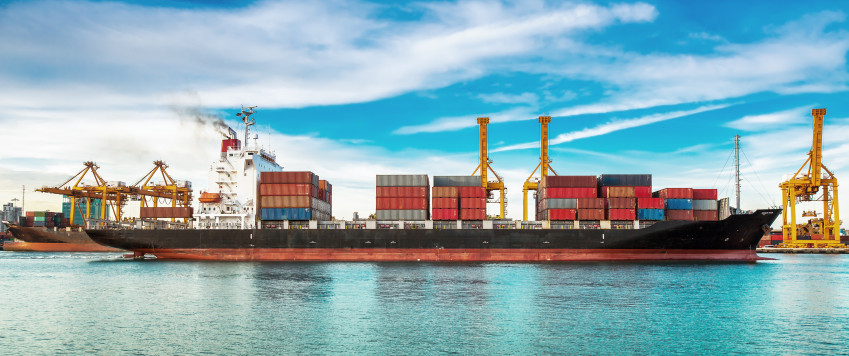Foreign trade data positive in January

The low base recorded in January of the previous year, with exports of goods posting the smallest ever export value since February 2012, was another factor affecting the growth vis-à-vis January of the previous year.
In accordance with the data of the CSB, the foreign trade turnover in Latvia decreased by 10.8% in January 2017 vis-à-vis December 2016, with exports and imports shrinking by 8.6% and 12.5% respectively. In comparison with January 2016, the value of exports and imports of goods had grown by 13.3% and 18.5 % respectively. The fall in import and export value over one month can be explained by seasonality.
The year-on-year growth in exports of goods was mostly contributed by manufacture of wood and articles of wood (with exports expanding to Sweden, Germany, Lithuania, Norway, Denmark, France, the UK, Italy, Poland, Korea, China and elsewhere), prepared food stuffs (including exports of beverages to Russia), base metals and articles of base metals, road transport vehicles, animal products (milk products, meat and fish), pharmaceutical products (with exports growing to Russia, Germany, Estonia, Lithuania, the Netherlands, Uzbekistan, Ukraine, Moldova, Kyrgyzstan, Israel and elsewhere), and building materials and furniture (with exports growing to Sweden, Denmark, France, the UK, Finland, Island, Norway, Belarus, Canada, Belgium and elsewhere).
A positive year-on-year expansion in exports of goods by country was secured by both the traditional export markets in such partner countries as Sweden, Germany, Russia, Lithuania, Estonia, Poland, the UK and other, more distant untraditional markets, e.g. in Asia (Turkey, China, Afganistan, Azerbaijan, Kyrgyzstan, India, Dienvidkoreju and other countries) as well as the markets in Canada and the US.
Like in December 2016, the purchase by "airBaltic" of the aircraft "Bombardier CS300" accounted for the largest year-on-year contribution to the expansion of imports of goods in January 2017. As reported by media, the company is planning to get the next such aircraft in March and to expand its fleet to eight planes of the same manufacturer by the end of the year. Furthermore, the company is planning to buy six more planes both in 2018 and 2019, thus its contribution to the expansion of goods imports is likely to be substantial and growing.
Domestic and geopolitical complications in many countries notwithstanding, the global economic growth data of recent months have been positive.
Though political uncertainty is increasing, the EU is recording somewhat strengthening employment and investment activity. Consumer and business sentiment indicators in the US and European countries have risen to the highest levels of recent years.
Year-on-year, the output volumes of Latvia's manufacturing expanded in January. Positively, the production growth was still maintained in manufacturing industries with the highest potential of goods exports, including the manufacture of wood, fabricated metal products, and food products. In addition, lending is gradually reviving in Latvia, and investment activity, supported by timely implementation of EU projects, which is vital for robust long-term expansion of goods exports, is expected to recover this year.
Last year, real volumes of goods exports rose, while the income growth from exports was primarily held back by falling global prices. Nevertheless, stabilisation of prices and the recovery of external demand render future perspective positive and give rise to expectations of goods exports growing at a faster rate than previously despite the still threatening external political risks.
Textual error
«… …»






